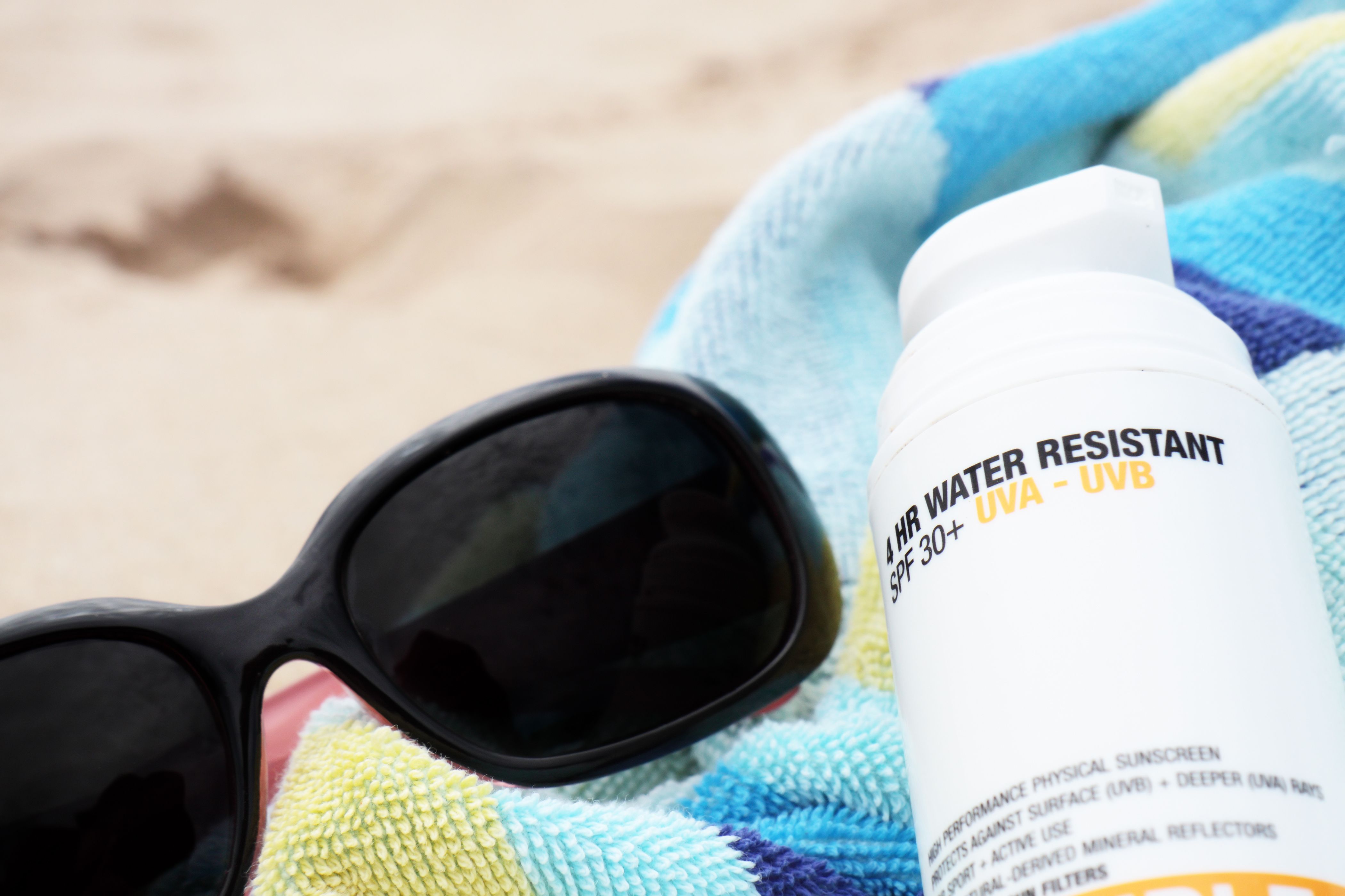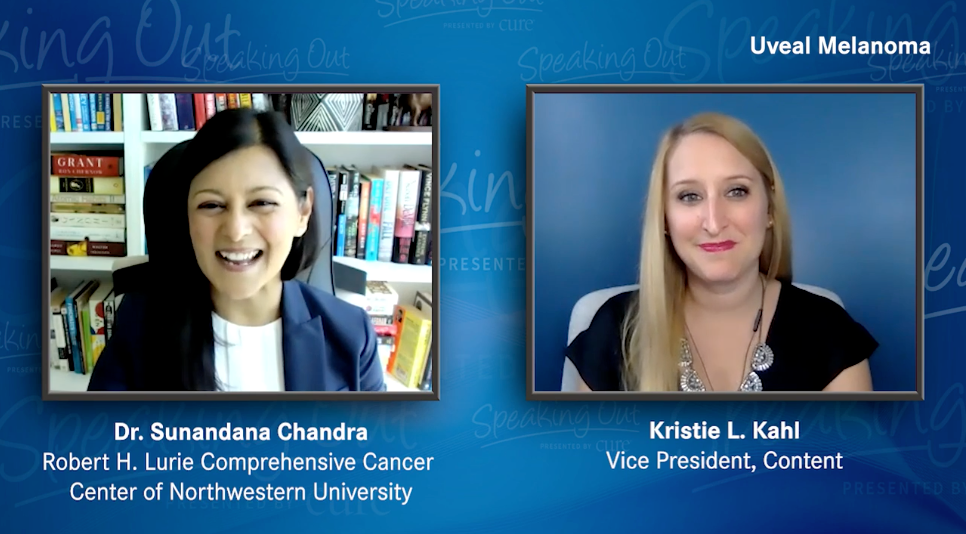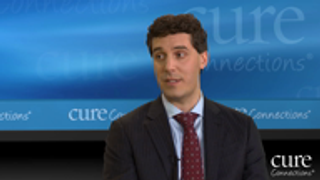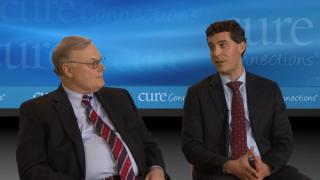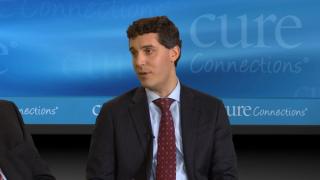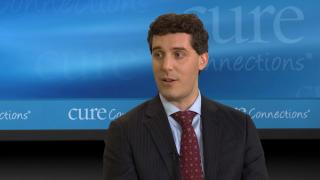
Skin Cancer
Latest News
Latest Videos

More News

Patients with skin cancer who are treated with radiation therapy as an alternative to surgery tend to experience effective results thanks to advanced technologies, according to an expert at the CURE® Educated Patient® Skin Cancer Summit.

Patients with melanoma are living longer than ever before and some, according to an expert from the Rutgers Cancer Institute of New Jersey, are even getting cured or achieving long-term remissions thanks to developments in the treatment landscape.

Topical treatments may lead to little to no scarring in patients with surface-level skin cancer, but patient characteristics, time of year, tumor characteristics and cost determine course of action.
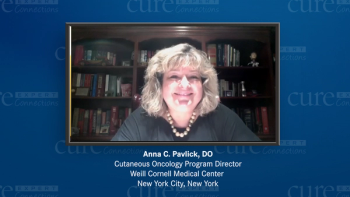
Anna C. Pavlick, D.O., describes the various challenges health care providers may face when treating patients with locally advanced basal cell carcinoma (laBCC).

Insights into cemiplimab treatment monitoring and management in locally advanced basal cell carcinoma (laBCC).

An expert discusses treatment options available for patients with locally advanced basal cell carcinoma (laBCC) who don’t respond or are intolerant to the first-line therapy option.

The Food and Drug Administration (FDA) approved Keytruda (pembrolizumab) for the treatment of patients with locally advanced cutaneous squamous cell carcinoma (cSCC) that cannot be cured by surgery or radiation.

As rates of merkel cell carcinoma increase, patients should be aware of the risk factors and symptoms of this skin cancer.

After a previous diagnosis of skin cancer, patients are more likely to develop skin cancer lesions on the body. An expert gives helpful tips on what to look for and how to look for lesions to catch them early.
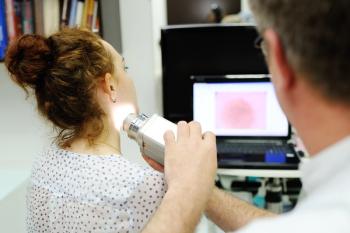
Patients with basal cell or cutaneous squamous cell carcinoma tend to have good outcomes when the disease is caught early. For those in later stages, new treatments bring hope and better prognoses.

Anna C. Pavlick, DO, provides an overview of hedgehog inhibitors, a first-line treatment option for patients diagnosed with locally advanced basal cell carcinoma (laBCC).

A discussion about multidisciplinary management of locally advanced basal cell carcinoma (laBCC) and how dermatologists and medical oncologists collaborate within the care of a patient.

An expert discusses features of a skin lesion that would prompt a skin biopsy in the diagnosis of locally advanced basal cell carcinoma (laBCC).

Anna C. Pavlick, D.O., provides an overview of locally advanced basal cell carcinoma (laBCC) that includes the different risk factors and clinical presentations.

Learn the differences between sunscreen types and what to look for.

View the full CURE Educated Patient Skin Cancer Summit on demand.

Even with newer technologies such as mRNA, experts predict it will be a few years before another cancer vaccine is approved.

As we all head outdoors to enjoy the warmer weather, The Skin Cancer Foundation would like to remind everyone how to use sunscreen safely and effectively as part of a complete sun protection strategy.
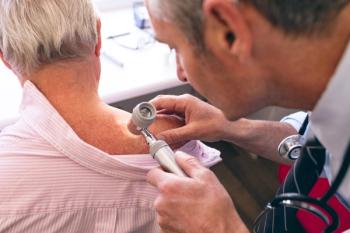
More than six years of follow-up data show that Opdivo alone, or in combination with Yervoy, continued to induce long-term survival benefits compared to Yervoy alone in patients with previously untreated advanced skin cancer.

Lifileucel with Keytruda may lead to an improved overall response rate of 86% for patients with advanced melanoma who were pre-checkpoint inhibitor naïve compared with those treated with Keytruda alone.

From a cancer survivor who cleans up trash and turns it into artwork to the inaugural National Black Family Cancer Awareness week, here’s what’s happening in the cancer landscape this week.

“Summer finds many of us outdoors and during that time, it’s important to protect our skin from the dangerous rays of the sun,” writes one breast cancer survivor. Learn more about how to use sunscreen, protect your skin and avoid skin cancer.

The use of Opdivo combined with the novel therapy relatlimab resulted in a significant improvement of progression-free survival compared to treatment with Opdivo, alone, in patients with previously untreated, unresectable or metastatic melanoma.

In honor of Skin Cancer Awareness Month, CURE® compiled some recent news and updates from this field that patients, survivors and caregivers may have missed.

A melanoma survivor pens a poem about his cancer journey, losing his wife to melanoma and how he lives his life after these experiences.


